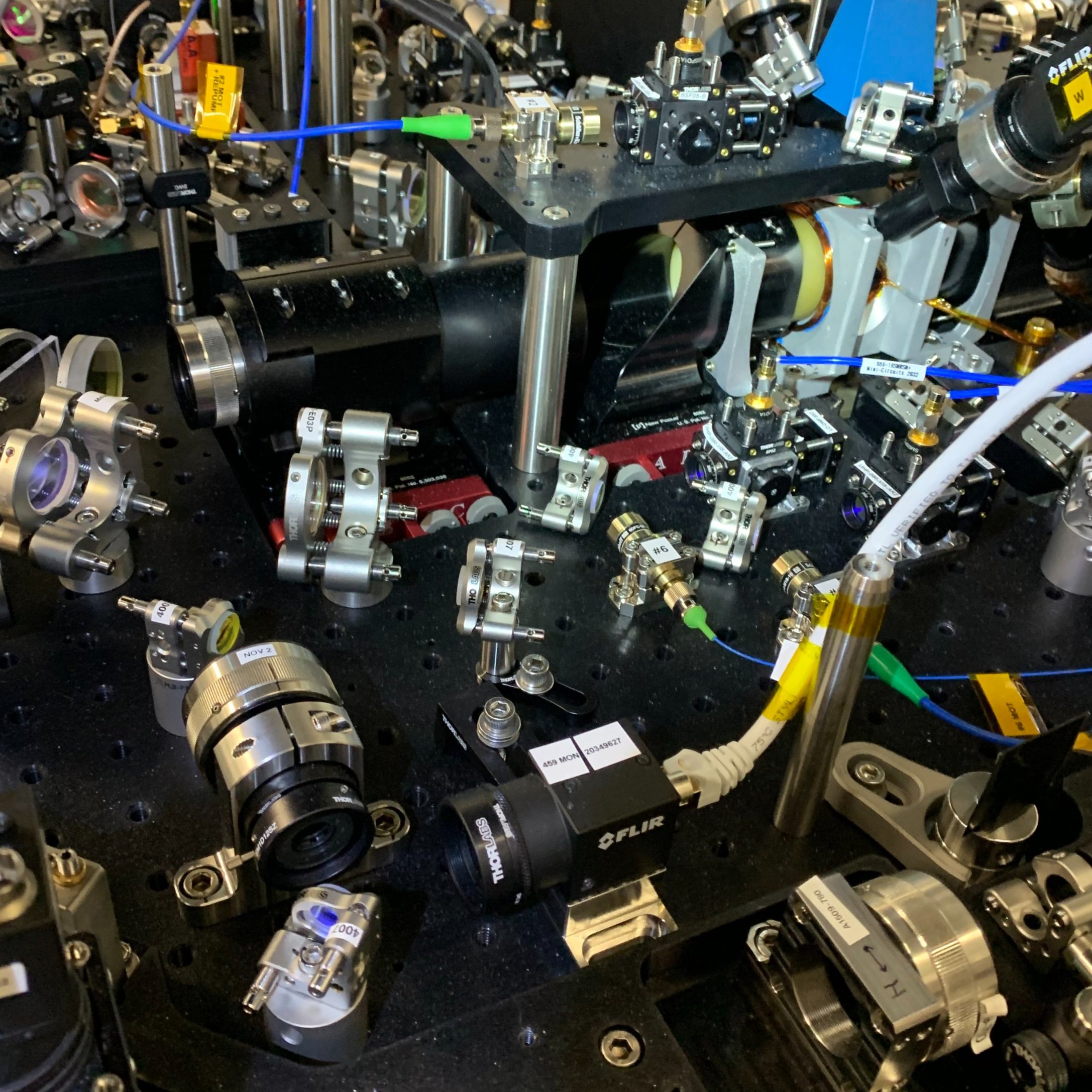Funding to Accelerate Deployment of Tiqker™ to Strengthen Secure Communications, GPS-Independent Navigation, and Precision-Guided Systems for Defense Applications
BOULDER, Colo.– Infleqtion, the world’s leading quantum information company, today announced its receipt of $11 million in funding from the U.S. Department of Defense (DoD) as part of the latest tranche of awards under the Accelerate the Procurement and Fielding of Innovative Technologies (APFIT) program. This funding supports Infleqtion’s work on the Rack Mounted Optical Clocks project, with Tiqker at the forefront, driving advancements in precision timing solutions—critical for enhancing military operational readiness, secure communications, and mission success in contested environments.
The Rack Mounted Optical Clocks project, which received a total of $22 million through the APFIT program, leverages cutting-edge quantum technology to deliver highly accurate, stable, and resilient timekeeping solutions. These next-generation optical clocks are designed to overcome the limitations of legacy time and frequency systems, offering unprecedented performance even in the most demanding environments.
“From secure communications to navigation and synchronization of complex systems, the ability to provide highly accurate and reliable timing is vital for defense operations,” said Matthew Kinsella, CEO of Infleqtion. “The funding awarded to Infleqtion will accelerate the deployment and fielding of these clocks, ensuring they are integrated into defense systems faster – giving the U.S. military a critical edge in maintaining operational advantage.”
The APFIT program, established under the National Defense Authorization Act of FY22, is designed to rapidly transition mature technologies into production, ensuring that warfighters receive critical capabilities sooner. This pilot program, with $300 million appropriated for FY24, focuses on technologies developed by small businesses and nontraditional defense contractors, emphasizing the rapid procurement and deployment of innovative solutions that enhance national security.
Tiqker, Infleqtion’s Rack Mounted Optical Clock, will support a range of defense areas, including assured communications, GPS-denied navigation, anti-spoof timing and synchronization for emerging technologies like one-way attack drone protection. Tiqker leverages rapid optical transitions between quantum states of atoms, offering a dramatic increase in accuracy and stability compared to alternatives. Designed for seamless integration into defense systems, Tiqker provides the performance required for complex operations in contested environments.
The award is part of the DoD’s broader effort to maintain technological superiority and shorten the timeline for deploying mission-critical technologies to the field. With potential applications in both military and civilian sectors, Tiqker’s deployment represents a significant step forward in ensuring operational readiness and technological dominance.
As the demand for precision timing grows, particularly in environments where GPS signals are unreliable or unavailable, the development of advanced timekeeping systems is a priority for national defense. Infleqtion’s optical clocks provide a solution that ensures continuity of operations in such scenarios, reducing dependency on vulnerable systems and enhancing resilience.
The APFIT award further cements Infleqtion’s position as a leader in the quantum technology space, building on its commitment to delivering state-of-the-art innovations that meet the evolving needs of defense and security sectors.
Register to join Infleqtion on January 23, 2025 at 9 a.m. PT for a live discussion titled: Quantum Technologies for National Resilience and Security.

